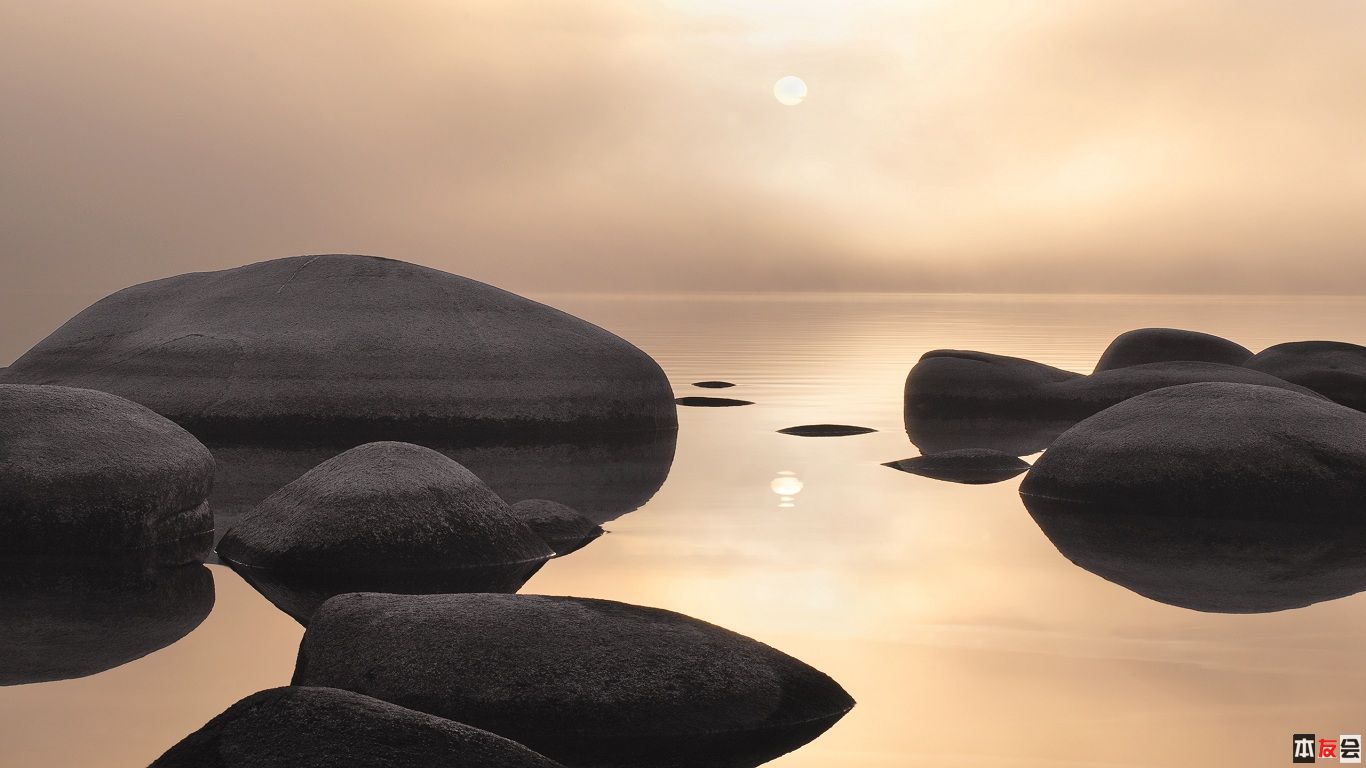An Ugly Stone
An Ugly Stone
Jia Pingwa

I used to feel sorry for that ugly black piece of stone lying like an ox in front of our door; none knew when it was left there and none paid any attention to it, except at the time when wheat was harvested and my grandma, seeing the grains of wheat spread all over the ground in the front yard of the house, would grumble: “This ugly stone takes so much space. Move it away someday. Thus my uncle had wanted to use it for the gable when he was building a house, but he was troubled to find it of very irregular shape, with no edges nor corners, nor a flat plane on it. And he wouldn’t bother to break it in half with a chisel because the river bank was nearby, where he could have e easily fetched a much better stone instead. Even when my uncle was busy with the flight of steps leading to the new house he didn’t take a fancy to the ugly stone. One year when a mason came by, we asked him to make us a stone mill with it. As my grandma put it: “Why not take this one, so you won’t have to fetch one from afar.” But the mason took a look and shook his head: he wouldn’t take it for it was of too fine a quality. It was not like a fine piece of white marble on which words or flowers could be carved, nor like a smooth big bluish stone people used to wash their clothes on. The stone just lay there in silence, enjoying no shading from the pagoda trees by the yard, nor flowers growing around it. As a result weeds multiplied and stretched all over it, their stems and tendrils gradually covered with dark green spots of moss. We children began to dislike the stone too, and would have taken it away if we had been strong enough; all we could do for the present was to leave it alone, despite our disgust or even curses. The only thing that had interested us in the ugly stone was a little pit on top of it, which was filled with water on rainy days. Three days after a rainfall, usually, when the ground had become dry, there was still water in the pit, where chickens went to drink. And every month when it came to the evening of the 15th of lunar calendar, we would climb onto the stone, looking up at the sky, hoping to see the full moon come out from far away. And Granny would give us a scolding, afraid lest we should fall down and sure enough, I fell down once to have my knee broken. So everybody condemned the stone: an ugly stone, as ugly as it could be. Then one day an astronomer came to the village. He looked the stone square in the eye the moment he came across it. He didn’t take his leave but decided to stay in our village. Quite a number of people came afterwards, saying the stone was a piece of aerolite which had fallen down from the sky tw o or three hundred years ago what a wonder indeed! Pretty soon a truck came, and carried it away carefully. It gave us a great surprise! We had never expected that such a strange and ugly stone should have come from the sky! So it had once mended the sky, given out its heat and light there, and our ancestors should have looked up at it. It had given them light, brought them hopes and expectations, and then it had fallen down to the earth, in the mud and among the weeds, lying there for hundreds of years! My grandma said: “I never expected it should be so great! But why can’t people build a wall or pave steps with it?” ‘It’s too ugly,” the astronomer said. “Sure, it’s really so ugly.” “But that’s just where its beauty lies!” the astronomer said, “its beauty comes from its ugliness.” “Beauty from ugliness?” “Yes. When something becomes the ugliest, it turns out the most beautiful indeed. The stone is not an ordinary piece of insensate stone, it shouldn’t be used to build wall or pave the steps, to carve words or flowers or to wash clothes on. It’s not the material for those petty common things, and no wonder it’s ridiculed often by people with petty common views.” My grandma became blushed, and so did I. I feel shame while I feel the greatness of the ugly stone; I have even complained about it having pocketed silently all it had experienced for so many years, but again I am struck by the greatness that lies in its lonely unyielding existence of being misunderstood by people.